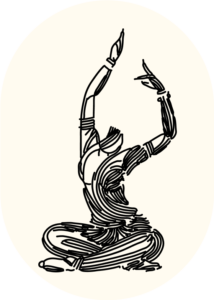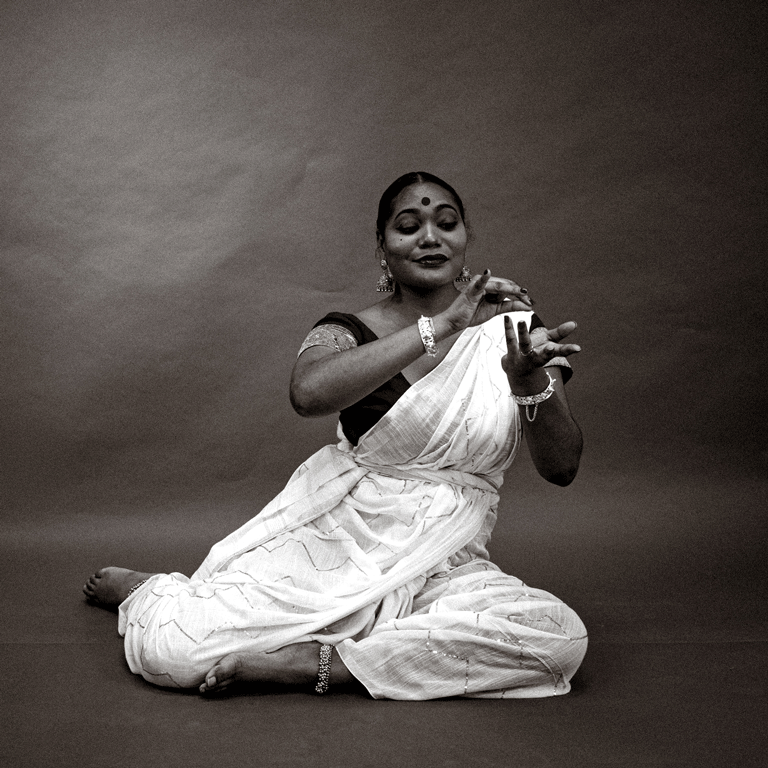ABOUT
Sádé Budhlall is a Trinbagonian anti-disciplinary Odissi artist whose practice engages movement as a site of political inquiry. Working across practice-based research, performance, film, and facilitation, she investigates how reconstructed classical forms discipline bodies — and how those bodies negotiate, resist, and reconfigure those logics through lived experience.
Her work unfolds across studio, stage, and public space, using movement to intervene in questions of power, discipline, and collective agency.

Her work approaches dance as a dynamic, relational practice situated in embodied knowledge and social inquiry. Grounded in phenomenology, diasporic embodiment and Caribbean ways of knowing, she engages movement as a site of critical reflection, ancestral memory and collective becoming shaped by Trinbagonian ritual, land-based practices and oral traditions.

Her pedagogy centres disobedient bodies as anti-disciplinary practice, cultivating emancipatory learning environments where movement becomes a site of inquiry, resistance and re-imagination. She supports dancers in working from lived experience, socio-cultural specificity and embodied memory, moving beyond technical form toward practices that unsettle power and expand creative possibility.

At the core of her practice is a sustained interrogation and agitation of the colonial inheritances that shape artistic lineages, institutional systems and socio-cultural life in neocolonial contexts such as Trinidad and Tobago.
Sádé’s choreographic work is informed by rigorous inquiry into how colonialism shapes relationships to self, community and land. Through a critical re-imagining of Trinbagonian-inflected Odissi, she explores resonances between the form and the musical, oral and literary traditions of Trinidad and Tobago, expanding its expressive range while asserting it as a tool for cultural authorship and embodied critique.
Her practice engages the body as a site of enactment and pre-enactment: a place where historical and ancestral memory is lived, reconfigured and projected toward liberatory futures not yet realised. Through this embodied political imagination, her work engenders new forms of consciousness and opens movement to alternative ways of knowing and becoming.
Drawing on histories of collective defiance, including the Black Power movement, the Hosay massacre, and solidarities forged between Indo- and Afro-Trinbagonians—she invites a reanimation of radical memory as a generative force for relationality and radical futurity.

Her artistry is grounded in her lived experience as a queer Indian classical dancer moving through the kinesthetic limbo between Indo- and Afro-Caribbean worlds. This embodied in-betweenness shapes her anti-neocolonial, anti-imperialist, anti-patriarchal, anti-capitalist and anti-racist praxis, and her belief in dance’s radical capacity to hold complexity, confront violent systems and and honour the many selves and solidarities we carry in relation to one another.
EDUCATION:
MA Dance: Participation, Communities and Activism
London Contemporary Dance School (University of the Arts London) 2024-2026
MA Artistic Placement
Parul Shah Dance Company (New York)
MA Mentor
Ananya Chatterjea
Ananya Dance Theater (Minnesota)